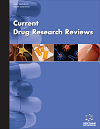
Full text loading...
Computational drug repositioning has emerged as an efficient approach to discovering new indications for existing drugs, offering lower risk and cost compared to traditional drug discovery methods. Various computational approaches have been developed, including target-based, gene-expression-based, phenome-based, and multi-omics-based methods. Recent advancements leverage diverse data sources, such as biomedical databases and online health-related information. Techniques incorporating drug structure and target information have shown promising results in predicting new drug indications. Despite significant progress, challenges remain, including data noise reduction, method ensemble, negative sample selection, and data sparseness. Overall, computational drug repositioning continues to be a valuable tool in drug discovery and development.

Article metrics loading...

Full text loading...
References


Data & Media loading...

